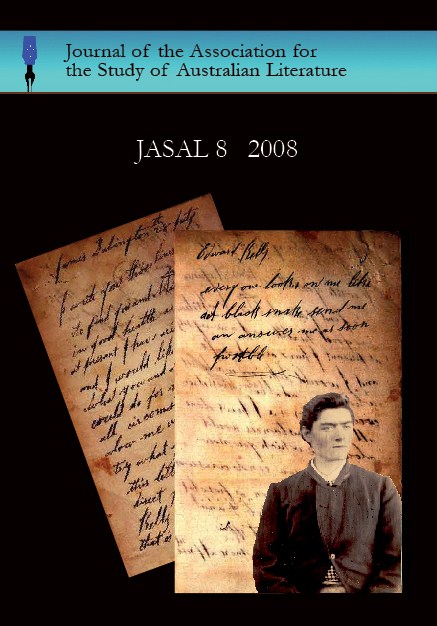The Eco-Centric Self and the Sacred in Xavier Herbert’s <em>Poor Fellow My Country</em>.
Keywords:
Xavier Herbert, Aborigines, Race, Ecology, Indigenous Mythology, the SacredAbstract
Herbert’s Poor Fellow My Country (1975) anticipated edgy twenty-first century national conversations about race relations and ecology currently occurring in Australia in the disciplines of history and historiography, anthropology, eco-philosophy, and literature. Set in the remote pastoral frontier of the Northern Territory in the 1930s and 1940s, the novel anatomises the genocidal practices of an encyclopaedic range of Australian institutions (political movements of the left and right, the squattocracy, the church, the law, the education and ‘welfare’ bureaucracies) and satirises the ‘Aboriginal industry’s’ systematic ignorance and denigration of Aboriginal culture. The novel promotes a new kind of nationalism which incorporates Indigenous citizenry as active players. Despite its manifest flaws, its ideological hyperbole and intense pessimism, and perhaps because of its extraordinarily expansive canvas (it is longer than War and Peace) and its formal experimentation, the novelist’s level of familiarity with Aboriginal culture, and his humanity are remarkable and prescient, especially in the light of current dysfunctionality in Aboriginal communities that have been systematically robbed of cultural pride. This paper looks behind Herbert’s satire (tub-thumpery?) to his radical views on what Aboriginal culture and in particular its mythological understandings of land have to offer to the ‘common-wealth’. The novel will be read in the light of contemporary post-colonially-inflected and Indigenous-centred oral history, mythology, and Australian eco-philosophy.Downloads
Published
2008-06-25
Issue
Section
Articles
License
The copyright for articles in this journal is retained by the author(s), with first publication rights granted to the journal. By virtue of their appearance in this open access journal, articles are free to use with proper attribution in educational and other non-commercial sectors.Attribution-NonCommercial-ShareAlike 2.1 Australia
This work is licensed under the Creative Commons Attribution-NonCommercial-ShareAlike 2.1 Australia License. To view a copy of this license, visit http://creativecommons.org/licenses/by-nc-sa/2.1/au/ or send a letter to Creative Commons, 543 Howard Street, 5th Floor, San Francisco, California, 94105, USA.

